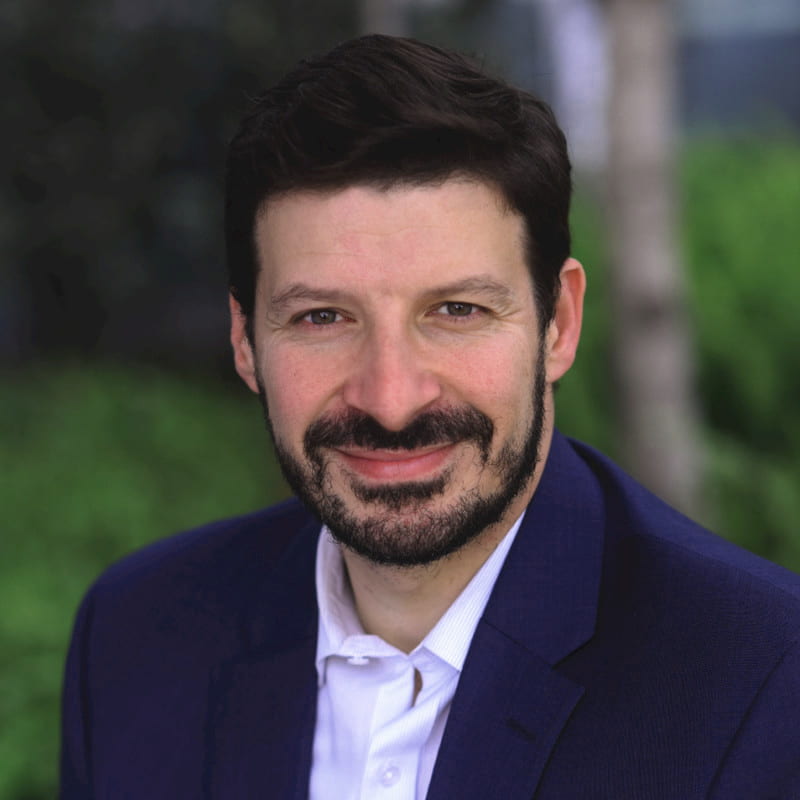
A Different Kind of Diagnosis
By Lynn Lipinski
Yaniv Bar-Cohen calls it like he sees it, not how he wants to see it.
It’s a personality trait that has served him well in his work as a pediatric heart rhythm specialist at Children’s Hospital Los Angeles, where most days include high-stakes patient diagnoses and treatment decisions made under extreme pressure.
It’s also served him well in his past year as USC Academic Senate president as he dealt with the fallout from the discovery of misconduct and mismanagement at the university.
“Solutions don’t come unless you face the problems,” Bar-Cohen said. A clear-eyed, honest examination of an issue should lead to the best decision, not the most convenient one.
While sweeping conflicts under the rug can maintain an illusion of harmony, it’s often short-lived. Bar-Cohen sees a benefit in having those difficult conversations and believes that universities like USC are well-suited to teach people how to converse during conflict.
“If we as a university can’t figure out how to have conversations where all sides are presented, where every view is listened to without making things personal, then I don’t know who can,” he said.
Walking the Walk
A March 19 forum for faculty, staff and students put his thinking to the test. Partnering with leaders of the undergraduate and graduate student government bodies as well as USC’s Staff Assembly, Bar-Cohen and the Academic Senate pushed to create an opportunity for open dialogue amongst the university community.
A key goal for the four leaders was to create a safe space for sharing and listening to one another. The university administration, including interim President Wanda M. Austin, were invited as guests and listeners, not as opposition.
Chief among Bar-Cohen’s worries that day was that the forum would devolve from a civil dialogue to an angry rant session. It never did, thanks in part to setting expectations at the beginning and the skillful moderation of the student, faculty and staff leadership. He hopes that there will be more forums like this in the future and that more people will attend and feel free to speak out.
“I want to tell [the USC community] that you can talk about how we can make these things better and people will listen to you,” he said. “That’s how it begins … learning how to communicate openly in an ongoing fashion about how to make USC a better place.”
Bar-Cohen will leave his role as president in July, but he hopes that the forum will live on and provide people with a consistent place to be heard. His dream? To create a place where people are both listening and moving forward.
“We are all part of trying to make USC better together,” he said. “This is the time to figure out what we want to be as a university.”
Words of Encouragement
For those who feel skeptical about culture-change efforts afoot at the university, Bar-Cohen has a message that stems from the changes he’s already seen: “Good times are ahead. I really do believe that.”
Though he acknowledges that the university has a way to go in rebuilding trust among its faculty, he thinks the work of the President’s Culture Commission and the Working Group on University Culture is key to creating a space for open and honest communication.
The idea of an environment in which all members do the right thing out of a culture of caring, rather than compliance, excites Bar-Cohen the most. Part of his passion for improving USC goes back to his idea that universities must be places where civil discourse is not just taught but lived. In this way, he sees the role of the university as crucial to improving the world and the human condition. Creating a culture of caring and communication at USC is a first step toward a much broader goal.
“We have a responsibility to our planet to learn how and to teach others how to communicate,” he said.
When his presidency ends, Bar-Cohen will be busy with a new arrival. He and his wife are expecting a baby shortly after his term. He’ll stay on the Senate Executive Board as the immediate past president and advise his presidential successor, Rebecca Lonergan. He’ll also return full-time to his practice at CHLA, his research on fetal pacemakers, and his work as co-director of the Consortium for Technology and Innovation in Pediatrics.